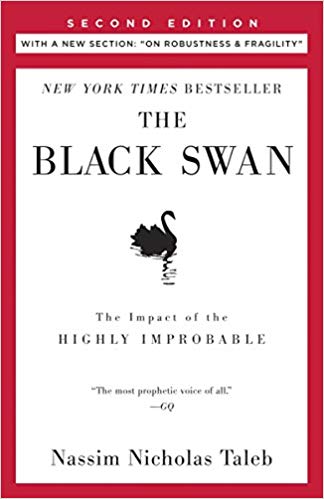

This article is an excerpt from the Shortform summary of "The Black Swan" by Nassim Taleb. Shortform has the world's best summaries of books you should be reading.
Like this article? Sign up for a free trial here .
What is the cosmological argument? Is it sound? What are the arguments against the cosmological argument?
The anthropic cosmological argument is the statement that human existence cannot be a random occurrence because of the specificity and number of factors that provide for that existence. This argument is touted by not only religious scholars but also physicists and philosophers.
We’ll cover the basics of the cosmological argument and explore the concept of “silent evidence,” the broader term for the lack of evidence in an argument.
The Cosmological Argument
The “anthropic cosmological argument,” touted by physicists and philosophers alike, states that human existence cannot be a random occurrence because of the specificity and amount of factors that provide for that existence. In other words, the odds are so stacked against the fact of human existence, that the only possibility is that the world was created precisely to allow for our existence.
Again, what the anthropic cosmological argument suppresses is the evidence of all the other species that didn’t thrive. We assume our beating the odds is the result of destiny, but it’s really a matter of numbers: If you consider the incredible number of species competing for survival, it stands to reason one—humans, in this case—was going to win the jackpot.
The Distortion of Silent Evidence
The cosmological argument distorts silent evidence. History—which Taleb defines as “any succession of events seen with the effect of posterity”—is inevitably, necessarily distorted. That is, no matter how “factual” or “objective,” the historical record is always a product of our tendency to narrate and thus always biased.
What the narratives are biased against is randomness—the inexplicability and importance of Black Swans.
Take most CEOs’ and entrepreneurs’ (auto)biographies. These books attempt to draw a causal link between the CEO/entrepreneur’s (a) character traits, education, and business acumen and (b) later success. The “silent evidence” (which Taleb also calls “the cemetery”) in these narratives is that there are many more people with the same attributes as the triumphant CEOs/entrepreneurs who failed. The fact is, in business, like in so many other fields, the deciding factor is nothing other than luck (i.e., randomness). This is similar to the fallacy in the cosmological argument.
Once we become attuned to the existence of “silent evidence”—which we can think of as the “flipside” or contrary to any story we’re told—we can see it everywhere.
For example, we base our knowledge of criminals and criminality on those that get caught (because the only criminals we know about are the ones that get caught). In other words, we have no real sense of how easy or hard it is to get away with a crime, because our notions about crime are formed solely by reports of failed criminals. Again, we’re lacking or ignoring information, as in the cosmological argument.
In the case of criminality, our ignorance of silent evidence actually serves a socially positive function because it makes getting away with a crime look hard and thus dissuades would-be criminals. But silent evidence can also encourage socially detrimental behaviors, such as risk-taking. This is because the successful risk-takers are the ones whose story is told; the failed risk-takers end up in the cemetery (in Taleb’s sense, but often literally as well).
Take, for example, Giacomo Casanova, the legendary ladies’ man and adventurer. Casanova was blessed with infallible luck—somehow he always managed to escape whatever predicament he found himself in. He believed he had a “lucky star” that watched out for him.
But for every Casanova, there are dozens of wannabe adventurers and seducers whose risks don’t pay off. As in the cosmological argument, we get a skewed sense of the benefits of risk-taking because the successful risk-takers are the ones with the means to tell their tales.
(Shortform note: Taleb doesn’t acknowledge that stories of risks that fail spectacularly—from Bernie Madoff to Theranos to Lehman Brothers—do get told quite often.)
———End of Preview———

Like what you just read? Read the rest of the world's best summary of "Black Swan" at Shortform . Learn the book's critical concepts in 20 minutes or less .
Here's what you'll find in our full Black Swan summary :
- Why world-changing events are unpredictable, and how to deal with them
- Why you can't trust experts, especially the confident ones
- The best investment strategy to take advantage of black swants






